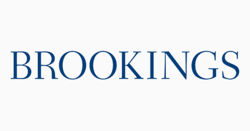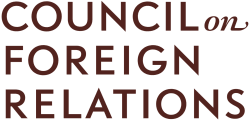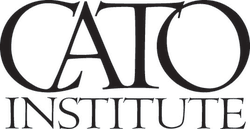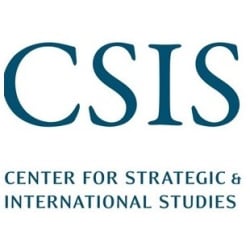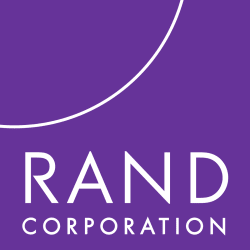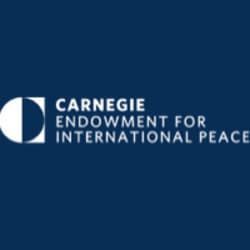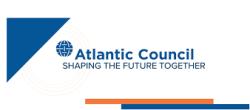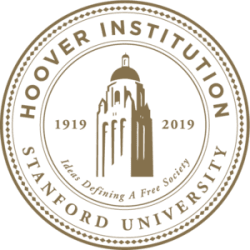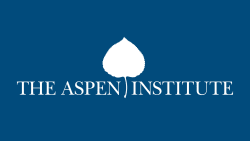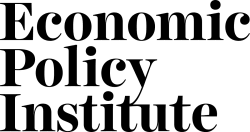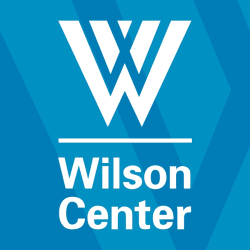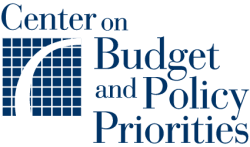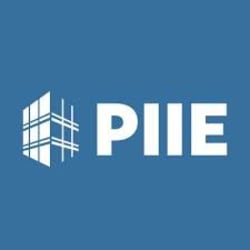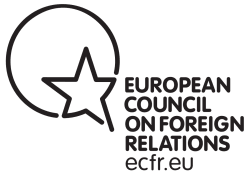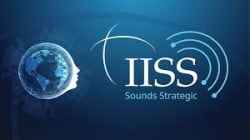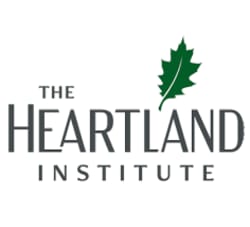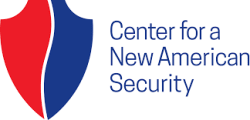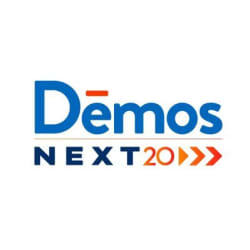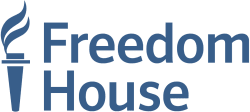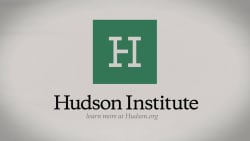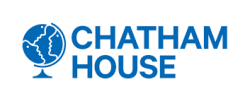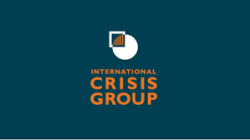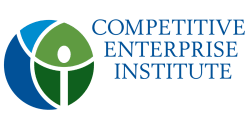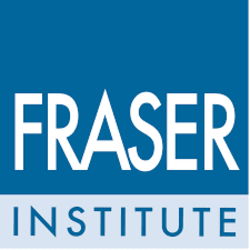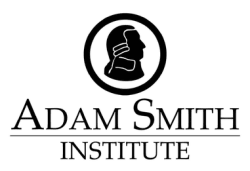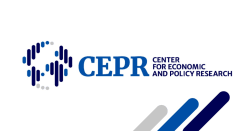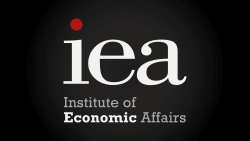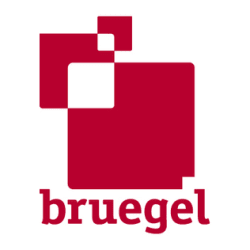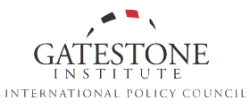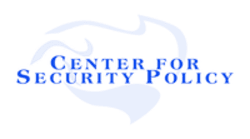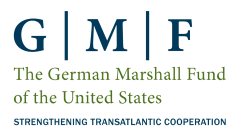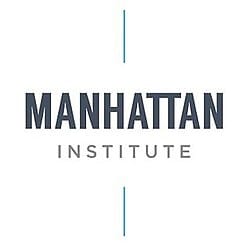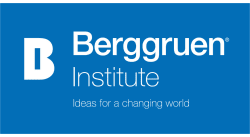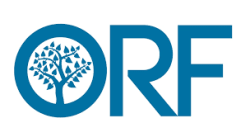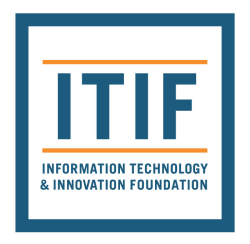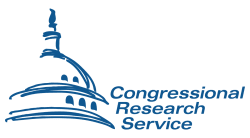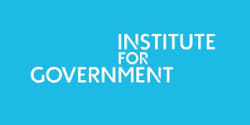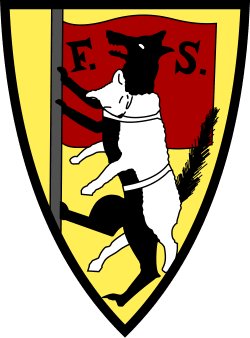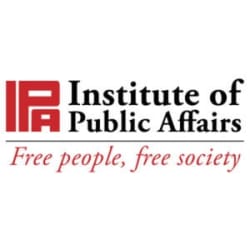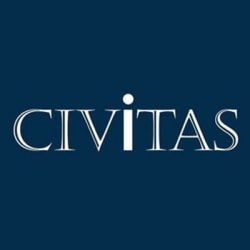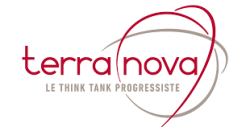Top Influential Think Tanks Ranked for 2024
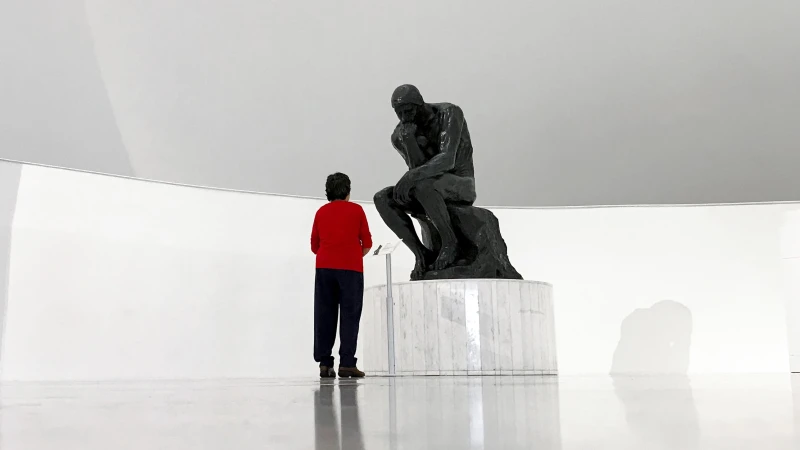
Whether you’re aware of it or not, think tanks have influenced your life and worldview by advancing policy measures in government, by shaping the media you consume, and even by inventing language that you use. Our list covers 50 highly influential think tanks in the world today. As active global citizens, it’s important to better understand who these organizations are, and how they’re influencing the world around us.
Often opinionated and even contentious, think tanks are a fixture of modern politics and public policy around the globe. Though focused intellectual groups have played an influential role in governance for centuries (royal courts, elite societies, and business clubs, for example), think tanks are a distinctly 20th century invention. The word itself comes from WWII military jargon, and, after being adopted and redefined over the years, has been retroactively applied to numerous pre-WWII institutions.
What is a think tank?
Think tanks are interest groups that pursue research and analysis to advance a set of values or ideas, often through political action and policy change, as well as through cultural and social influence. Some think tanks are truly non-partisan, regularly working with administrations of both main US political parties (we label them “centrist” in the list below), while others self-identify as non-partisan despite evidence to the contrary (we reserve the right to exercise our own judgment about such cases), and still others are explicitly or tacitly conservative, neo-conservative, libertarian, centrist, liberal, progressive, or socialist.
Some think tanks focus on domestic policy and some on foreign policy. Some pursue free-market capitalism and limited government, while others argue for increased taxes and social welfare spending. Still others debate revolution or monitor the growth of liberation movements in foreign countries. They wield influence by publishing reports and books, developing research tools, running media campaigns, holding events and conferences, directing lobbying action, and enlisting high-ranking and well-connected members. Some are broadly transparent about their sources of funding and support, while others are quite guarded about this information.
Whether you’re aware of it or not, think tanks have influenced your life and worldview. They do this through policy measures they help enact into law, through the media they shape and you consume, and—perhaps most insidiously—through the language they invent and you use. While you might know the names of a few think tanks, many of them are unfamiliar to the general public, and have bland names that do little to enlighten the uninitiated about their goals or focus.
This list covers the 50 most-influential think tanks in the world today. If you wish to be an active, well-informed citizen, it’s important to better understand who these organizations are and how they’re influencing the world around you. You may even want to get involved working with—or against—one of them!
Methodology
Our innovative ranking technology delivers a better way for important individuals and institutions to shine by capturing an essential metric: true influence. By “true influence,” we mean the level of attention and penetration an idea and/or entity achieves worldwide.
To do this, we:
- aggregate scholarly and academic citations;
- track the attention they receive; and
- weigh their merits against other information sources such as newspapers, magazines, and global media outlets.
Importantly, our machine learning technology doesn’t simply scrape the web for mentions. The artificial intelligence (AI) behind it digs deeply, by
- identifying entities and institutions,
- finding mentions of the institution across the web,
- mapping the people that make up an institution, including independent work done by those people and their affiliations with other institutions, and
- mapping institutional output by identifying ideas as entities for further tracking.
As this mapping develops and signals strengthen between these entities, we collect essential data for comparing the influence of organizations (in this case, think tanks). For added corroboration and results assurance, we employ web traffic analysis from third parties (including SEMrush and Ahrefs) to track the organic search traffic leading to the think tanks’ domains, each domain’s keyword footprint, the number of referring domains, and the authority of those referring domains.
In summary, our team of data scientists is confident this combination of web data aggregation, AI-driven data analysis, and independent web search monitoring yields an accurate, reliable measure of a think tank’s global influence.
The Most Influential Think Tanks in the World Today
- 1
Brookings Institution
Washington, DC, USA
Visit WebsitePolitical bias: Liberal
The Brookings Institution (“Brookings”) is the premier think tank in the US, if not the world. It was founded through the merger of three Washington-based, social science and public policy research organizations in 1927. One of these, the Institute for Government Research, had been founded by wholesale distribution and shipping magnate turned philanthropist, Robert S. Brookings (1850–1932) in 1916.
Originally occupied mainly with studying the economic impact of tax policy, during the Great Depression Brookings was tasked by the administration of President Franklin D. Roosevelt (1933–1945) with studying the underlying causes of that devastating economic downturn and with recommending remedies. After World War II, Brookings became deeply involved with devising and implementing the Marshall Plan for the reconstruction of Europe. Thus, gradually over the years the institution has expanded its reach to a global scale.
While Brookings refers to itself as politically “non-partisan” and “centrist,” more than 90 percent of the political donations made by its scholars and staff members go to Democratic Party candidates.
Today, Brookings is heavily involved in economic development efforts around the world, while still maintaining a strong research interest in the US economy and political system. The institution’s roster of more than 300 experts is drawn from all quarters of the world. These scholars pursue their policy research, analysis, and recommendations under the auspices of one the following research programs: economics, foreign policy, global economy and development, governance, and metropolitan policy. Retired Marine Corps, four-star General John R. Allen (b. 1953) has served as Brooking’s President since 2017.
Through its prestigious research programs, through the many books, academic articles, and policy statements it produces (including a widely read “Annual Report”), through the 40-odd field programs it supports around the world, and finally through its 16 specialized disciplinary centers (notably, the Center for Middle East Policy) based in the US, as well as Brookings Doha Center in Qatar, today’s Brookings Institution has a profound political impact on both the US and the world.
Notable Brookings-associated people include:
- Columnist E. J. Dionne
- Diplomat Jon Huntsman, Jr.
- Education policy analyst and author, Diane Ravitch
- US Ambassador to the United Nations, Susan Rice
- Economist Alice Rivlin
- Foreign policy analyst and columnist, Strobe Talbott
PEOPLE: Brookings’ 300 leading experts in government and academia.
- 2
The Heritage Foundation
Washington, DC, USA
Visit WebsitePolitical bias: Conservative
The Heritage Foundation (“Heritage”) is the largest and most-influential American think tank with a conservative political viewpoint. It was founded in 1973 by political activist Paul Weyrich (1942–2008) and policy analyst Edwin J. Feulner, Jr. (b. 1941), with financial backing from beer dynasty scion Joseph Coors, Sr. (1917–2003). Former public servant Kay C. James (b. 1949) served as President of Heritage from 2018 through the spring of 2021, when she announced her intention to step down.
Heritage’s announced mission is “building an America where freedom, opportunity, prosperity, and civil society flourish.” The foundation also states that it aims to “formulate and promote conservative public policies based on the principles of free enterprise, limited government, individual freedom, traditional American values, and a strong national defense.”
The founders of Heritage have stated that one of the reasons they felt the need to create a top-notch incubator of policy ideas was to oppose the leftward trend of the administration of liberal Republican President Richard Nixon (1969–1974). Accordingly, the foundation has been closely associated in terms of policy recommendations (and, in some cases, personnel) with the more-conservative Republican administrations of Ronald Reagan (1981–1989), George H. W. Bush (1989–1993), George W. Bush (2001–2009), and Donald Trump (2017–2021).
Every year, Heritage publishes the highly influential Index of Economic Freedom, which rates the world’s countries on a scale of openness to free enterprise. The foundation also has a strong impact through its coveted internships and Young Leaders Program. Despite Heritage’s strong commitment to economic freedom and limited government, it is to be distinguished from several other prominent think tanks with a more libertarian orientation for its greater sympathy towards the role of religion in American public life.
Over the years, Heritage has made a substantial contribution to the public debate on many well-known governmental policies, notably President Ronald Reagan ’s Strategic Defense Initiative and President Bill Clinton ’s 1996 welfare reform bill, as well as current discussions and policy proposals relating to school vouchers, global warming, election integrity, and many other matters of vital public concern.
Notable Heritage-associated people include:
- Hillsdale College President, Larry P. Arnn
- Journalist and author, Midge Decter
- Former US Senator, Jim DeMint
- Forbes magazine President and CEO, Steve Forbes
- Mercer Family Foundation Director, Rebekah Mercer
PEOPLE: Heritage’s leaders and experts.
- 3
Council on Foreign Relations
New York, New York, USA
Visit WebsitePolitical bias: Liberal
Founded in 1921, the Council on Foreign Relations (“CFR”) is now celebrating its centennial. As its name suggests, CFR focuses on US foreign policy and international relations. One of the many ways in which it exerts influence in these areas is through its widely read journal, Foreign Affairs.
The motive force behind the founding of CFR was the administration of President Woodrow Wilson (1913–1921). In 1919, in preparation for the Versailles Conference, which produced the treaty that officially ended World War I, Wilson assembled a group of like-minded internationalists to help him make the case for a new global peace-keeping mechanism. He partly succeeded, in that the League of Nations was founded early in 1920; however, he also partly failed, in that the US Senate refused to allow America to join the new international body.
Upon Wilson’s death, his collaborator Elihu Root (1845–1937)—former Secretary of State under President Theodore Roosevelt and recipient of the 1912 Nobel Peace Prize—assembled a group of like-minded associates with the aim of creating an institution capable of exerting influence on US public opinion (always skeptical of “foreign entanglements”) in an internationalist direction. Thus was born the CFR. Root and its other founders envisioned it as a sort of “continuous conference on international questions affecting the United States,” and over the past century, that is just what it has become.
CFR underwent a significant expansion during World War II, producing nearly 700 memoranda by means of which it sought to create “a roadmap for a post-war world order.” Perhaps the most influential of these was the celebrated 1947 Foreign Affairs article titled “The Sources of Soviet Conduct” by George F. Kennan (1904–2005), writing as “X.” In this famous piece, Kennan sketched the “containment” policy which formed the bedrock of US-Soviet relations for the next 40 years. The careers of several other well-known public servants have been advanced over the years by their collaboration with CFR, notably, those of Henry Kissinger (b. 1923) and Condoleezza Rice (b. 1954).
During its century of life, CFR has steadily expanded its size and scope. Indeed, since the beginning of the twenty-first century, its growth has been exponential. Today, CFR boasts some 5000 members, as well as a second major headquarters situated in a spacious new facility in Washington, DC.
As it has grown, CFR has also expanded the scope of its operations. It now sponsors major programs in many specialized areas which have the potential to impact international relations, including terrorism, arms proliferation, trade, information technology, women’s rights, immigration, global health, climate change, and more.
Notable CFR-associated people include:
- Current US President, Joe Biden
- 42nd US President, Bill Clinton
- Former US Secretary of State and 2016 Democratic Presidential candidate, Hillary Clinton
- Former US Supreme Court Justice, Ruth Bader Ginsburg
- Former USSR President, Mikhail Gorbachev
- 37th US President, Richard M. Nixon
- Current US Treasury Secretary, Janet Yellen
PEOPLE: CFR’s 70 full-time, adjunct, and visiting scholars and practitioners.
- 4
Cato Institute
Washington, DC, USA
Visit WebsitePolitical bias: Libertarian
The Cato Institute (“Cato”) was founded in 1974 in Wichita, Kansas, by three individuals: the libertarian economist and political philosopher, Murray Rothbard (1926–1995), the Libertarian Party activist, Edmund Harold Crane (b. 1944), and the billionaire entrepreneur and philanthropist, Charles Koch (b. 1935). It was originally named the Charles Koch Foundation. In 1976, the name was changed to its present form at Rothbard’s suggestion. In 1981, Cato moved to its present location in the nation’s capital.
Libertarianism is the economic and political philosophy which maintains that free enterprise and limited government are the best means of realizing the common good, by ensuring both economic prosperity and personal liberty for individuals in all walks of life and so for society as a whole.
The name change was made to honor Cato’s Letters, a collection of 144 essays published weekly in the London Journal over a period of almost three years beginning in 1720 and appearing in book form in 1723. These essays played a strong role in instilling republican values in the US founding fathers a generation later. Cato’s Letters was authored by two Englishmen, John Trenchard (1662–1723) and Thomas Gordon (c. 1691–1750), who wrote under the collective pseudonym of “Cato.” This pseudonym, in turn, honored the ancient Roman statesman, Cato the Younger (95–46 BC), who stoutly defended the Roman Republic against the military dictatorship imposed by Julius Caesar in 49 BC. In short, down through history the name “Cato” has stood for the defense of freedom against tyranny.
However, Cato’s strong stance in defense of republican values should not be confused with support for foreign intervention. On the contrary, Cato has vigorously opposed the foreign-policy interventionism of both Democratic and Republican administrations. On the other hand, Cato provides strong support to individuals engaged in the peaceful struggle for civil liberties in many countries around the world.
Today, among the institute’s many initiatives, the Cato Journal and the Human Freedom Index may be mentioned as enjoying a relatively broad readership and influence.
Notable Cato-associated people include:
- Nobelist in economics, James M. Buchanan
- Economist, Tyler Cowen
- Legal scholar, Richard Epstein
- Nobelist in economics, Friedrich Hayek
- Nobelist in economics, Vernon L. Smith
- Economist and historian,Lawrence H. White
PEOPLE: Cato’s policy scholars.
- 5
Center for Strategic and International Studies
Washington, DC, USA
Visit WebsitePolitical bias: Centrist
The Center for Strategic and International Studies (“CSIS”) began its life in 1962 under the auspices of Georgetown University. The brainchild of founders US Navy Admiral, Arleigh Burke (1901–1996), and historian and public servant, David Manker Abshire (1926–2014), CSIS specializes in strategic analyses of international relations, politics, and economics in relation to US defense and national security.
Through the years, CSIS has often exerted direct influence on the White House with respect to foreign policy and defense issues, with numerous figures from the center finding their way into high-ranking roles in both Democratic and Republican administrations. Conversely, several former White House officials have gone on to work at CSIS following their tenure in public office.
CSIS has played an influential role in shaping international relations and US foreign policy during both the Cold War and the post-Soviet period. In recent years, it has begun to cast its net widely, addressing a broad range of global issues from trade to health to climate change. The thinking of the CSIS has also had an impact on the operations of various international governmental entities and non-governmental organizations, including the International Monetary Fund (IMF) and the World Bank.
Today, CSIS operates programs such as the Defense-Industrial Initiatives Group and the Global Health Policy Center. It also maintains influence through events and talks, webcasts, and widely read publications such as New Perspectives in Foreign Policy. CSIS scholars publish in a wide range of mainstream media outlets.
Notable CSIS-associated people include:
- Former US Secretary of State, Madeleine Albright
- Former Israeli President, Ehud Barak
- Current US Secretary of State, Antony Blinken
- Former US Secretary of State, Henry Kissinger
- Former US Senator, Sam Nunn
- Pritzker Organization CEO, Thomas Pritzker
PEOPLE: CSIS’s 100 experts in residence.
- 6
American Enterprise Institute
Washington, DC, USA
Visit WebsitePolitical bias: Neo-conservative
The American Enterprise Institute (“AEI”) was established in 1938 in response to President Franklin D. Roosevelt’s New Deal. Founded by a group of businessmen led by industrialist Lewis H. Brown (1894–1951), AEI originally focused on politics, economics, and domestic government policy in areas such as welfare.
Today, AEI runs programs for its permanent and visiting scholars in the following areas: economics; foreign and defense policy; health care; politics and public opinion; poverty studies; and society and culture.
AEI’s mission statement states that its scholars and staff seek to “[defend] human dignity, [expand] human potential, and [build] a freer and safer world” by advancing ideas rooted in democracy, the free enterprise system, and American strength and global leadership. AEI maintains that such a program is the best way of maintaining solidarity “with those at the periphery of our society” and of building “a pluralistic, entrepreneurial culture.”
AEI is similar to other conservative and libertarian think tanks in its emphasis on laissez faire economics; however, its strong emphasis on America’s national security posture and a strong military identifies AEI as more closely associated with the “neo-conservative” political philosophy. Neo-conservatism seeks opportunities to actively expand the American model of governance to failed nation states abroad by military force, if necessary.
Also, in conformity with neo-conservative principles, another part of AEI’s mission statement says that it seeks to undergird “American national defense,” thus helping to thwart “transnational threats emanating from China, Iran, North Korea, and Russia.”
Notable AEI-associated people include:
- Former US Vice President, Dick Cheney
- 38th US President, Gerald Ford
- Former US Representative, Newt Gingrich
- Author and former Dutch politician, Ayaan Hirsi Ali
- Political scientist and former UN Ambassador, Jeane Kirkpatrick
- Historian, author, and former US Senator, Daniel Patrick Moynihan
PEOPLE: AEI’s scholars for expanding freedom.
- 7
RAND Corporation
Santa Monica, California, USA
Visit WebsitePolitical bias:Centrist
The RAND Corporation (“RAND”) is a non-profit American think tank headquartered in Santa Monica, California. RAND, whose name is an acronym for “Research and Development,” is primarily focused on research in the areas of defense and global policy.
The RAND corporation traces its origins to 1945, when Project RAND was created via a special contract with the Douglas Aircraft Company after discussions with the War Department and the Office of Scientific Research and Development. In 1948, it was established as a separate organization when Douglas Aircraft Company expressed concern over a potential conflict of interest.
The initial push for the Rand Corporation was to handle research and development for the US military, and it soon began to play a key role in Cold War policies, starting with the “space race” of the 1950s, as well as the nuclear arms race. RAND promoted the doctrine of nuclear deterrence and coined the idea of “mutually assured destruction,” which formed the foundation of Cold War defense policy. In fact, RAND Chief Strategist, the systems-theorist Herman Kahn (1922–1983), was the inspiration for the character Dr. Strangelove in Stanley Kubrick ’s 1964 film of the same name.
Today, the RAND Corporation remains influential through close connections with the US Department of Defense, through research and reports, through its scholarly journal, the RAND Journal of Economics, through publication in various media outlets, and through the Pardee RAND Graduate School, a private, public policy–oriented graduate school, also located in Santa Monica, California.
Notable RAND-associated people include:
- Nobelist in economics, Kenneth Arrow
- Nobelist in economics, Robert Aumann
- Computer engineer, Paul Baran
- Political scientist, Francis Fukuyama
- Nobelist in economics, Paul Samuelson
- Psychologist, systems theorist, and Nobelist in economics, Herbert A. Simon
- Mathematician, physicist, and computer pioneer, John von Neumann
PEOPLE: Rand’s policy experts.
- 8
Carnegie Endowment for International Peace
Washington, DC, USA
Visit WebsitePolitical bias: Liberal
The Carnegie Endowment for International Peace (“CEIP”) is an American nonprofit think tank headquartered in Washington, DC. Focused on global policy matters, the CEIP accordingly has centers around the world, including in Beijing, New Delhi, and Moscow.
Among the oldest institutions on this list, CEIP was established in 1910. It traces its origins to the famed industrialist, Andrew Carnegie (1835–1919), who founded the organization out of a commitment to his internationalist ideals. Notably, the first president appointed to the CEIP endowment was Elihu Root (1845–1937), former Secretary of State and later founder of the Council on Foreign Relations (CFR) (see #3 above). CEIP’s declared mission was to “hasten the abolition of international war, the foulest blot upon our civilization.”
Accordingly, CEIP was heavily involved with the peace talks in France at the close of World War I. In later years, CEIP became involved in the formation of the Hague Academy of International Law, as well as the United Nations Commission on Human Rights. It is interesting to note that CEIP is regarded as responsible for popularizing the term “genocide.”
In recent history, CEIP is cited as being the first global think tank. It has expanded its global presence rapidly during the last two decades. CEIP exerts influence through its centers, publications, events, reports, and direct involvement in forming policy. It is reported to have close ties with Chinese Communist Party.
Notable CEIP-associated people include:
- Current CIA Director, William J. Burns
- Columbia University President and Nobel Peace Prize recipient, Nicholas Murray Butler
- Former US Secretary of State, john Foster Dulles
- Peace activist and past CEIP President, Jessica Tuchman Matthews
- Former US Secretary of Commerce, Penny Pritzker
PEOPLE: Carnegie’s experts.
- 9
Atlantic Council
Washington, DC, USA
Visit WebsitePolitical bias: Centrist
The Atlantic Council is a non-partisan, non-profit think tank established in 1961. As its name indicates, its primary orientation is Atlanticist—that is, its work is focused on the formal alliances and more-informal economic, political, and military relationships between North America (primarily, the US and Canada) and Europe (the UK and the EU). The Atlantic Council is headquartered in Washington, DC.
The Atlantic Council was formed during the Cold War, with the goal of fostering cooperation between America and Western European countries. It owes much of its influence to policy-making members active in presidential administrations of both parties. Additionally, the council hosts numerous high-profile events, offers a variety of awards and fellowships, and publishes numerous policy studies. It has also established a number of special programs and centers, including the Program on Transatlantic Relations, the Young Atlanticist Network, and the Global Business and Economics Program. Over the years, the council’s focus has grown beyond the North Atlantic to include global issues, particularly in Asia.
The council’s Millennium Leadership Program has been styled a “leadership accelerator” whose aim is to further the careers of rising leaders in a variety of sectors from around the world.
Notable Atlantic Council-associated people include:
- Former US Homeland Security Advisor, Tom Bossert
- Cyber security expert, Jason Healey
- Former US diplomat, Richard Holbrooke
- Former US ambassador to Russia and China, Jon Huntsman Jr.
- Former US National Security Advisor, Brent Scowcroft
PEOPLE: Atlantic Council’s experts.
- 10
Hoover Institution
Stanford, California, USA
Visit WebsitePolitical bias: Conservative
Headquartered on the campus of Stanford University in Stanford, California, the Hoover Institution (“Hoover”) recently passed its centennial mark. Hoover is named in honor of the 31st US President, Herbert Hoover (1874–1964), who served in office from 1929 until 1933. Hoover (the institution) is committed to supporting the standard pillars of American conservatism: private enterprise, personal freedom, and representative government.
Hoover—whose full official name is the Hoover Institution on War, Revolution, and Peace—traces its roots to the research library established on the Stanford campus by the future thirty-first president, who was a wealthy engineer and proud Stanford graduate. The initial objective of the institution—as with many other think tanks founded in the immediate aftermath of World War I—was to collect materials for research pertaining to war, international relations, and peace. Later, President Herbert Hoover donated his personal and official presidential archives to the facility.
During the 1940s, Hoover transitioned more into performing its own research, and in the 1950s became the think tank we recognize today. Through the years, the Institution has wielded significant influence on American public policy, both regionally and federally. Its first honorary fellow, in fact, was then-Governor of California, Ronald Reagan . During President Reagan’s presidential term of office (1981–1989), numerous Hoover staffers gained roles at the White House.
Among Hoover’s many research reports and book and serial publications, the journal Uncommon Knowledge is noteworthy. As of Spring, 2021, former US Secretary of State, Condoleezza Rice (b. 1954), is Hoover’s director.
Notable Hoover-associated people include:
- Historian, Niall Ferguson
- Classicist and military historian, Victor Davis Hanson
- Publisher of Die Zeit, Josef Joffe
- Economist, Glenn Loury
- Historian, Harvey Claflin Mansfield
- Economist, Thomas Sowell
- Political scientist, Shelby Steele
PEOPLE: Hoover’s fellows.
- 11
Aspen Institute
Washington, DC, USA
Visit WebsitePolitical bias: Liberal
The Aspen Institute (“Aspen”) is an international, non-profit think tank that was founded in 1950. Headquartered in Washington, DC, it has campuses around the US (Aspen, Colorado—the original location; San Francisco, New York; and Wye River, Maryland) and around the globe (Paris; Lyon; Madrid; Rome; Berlin; Prague; Bucharest; Kiev; New Delhi; Tokyo; Mexico City), as well as other leadership initiatives in the US, in Central America, in India, and on the African continent. Aspen’s activities are focused on promoting a “free, just, and equitable society.”
Aspen was founded in Aspen, Colorado, by American industrialist and philanthropist Walter Paepcke (1896–1960). It draws its name from the fact that it was founded in Aspen, Colorado. Through Aspen—whose original name was the Aspen Institute for Humanistic Studies—and such associated annual events as the Aspen Music Festival and the International Design Conference, Paepcke sought to foster the
flourishing of the human spirit.
Through the years, Aspen has opened a variety of centers and created other major events, including the Aspen Center for Physics, the Aspen Strategy Group, and the Aspen Ideas Festival. The latter has featured such prominent speakers as the 42nd US President Bill Clinton , Microsoft founder and CEO, Bill Gates , former US Supreme Court Justice Ruth Bader Ginsburg , and former US Secretary of State Madeleine Albright .
Beyond its centers and events, the Aspen Institute has been influential through research, reports, and publications such as Ideas magazine. Its activities cover a wide range of subjects, including energy and environment, business and economics, social enterprise, global affairs, and equity and social justice.
Notable Aspen-associated people include:
- Legal scholar, Stephen L. Carter
- Philosopher, José Ortega y Gasset
- Literary scholar, Henry Louis Gates Jr.
- Scholar of religion, Elaine Pagels
- Pianist, Arthur Rubinstein
- Musicologist, humanitarian, and Nobel Peace Prize recipient, Albert Schweitzer
- Playwright and novelist, Thornton Wilder
PEOPLE: EPI’s staff and EPI’s experts.
- 12
Economic Policy Institute
Washington, DC, USA
Visit WebsitePolitical bias: Progressive
Established in 1986, the Economic Policy Institute (“EPI”) is an American non-profit think tank dedicated to economic policy. EPI was founded by the economist, author, and public servant, Jeff Faux (b. 1936)—with the participation of other prominent economists, including Lester Thurow (1938–2016), Robert Kuttner (b. 1943), and Robert Reich (b. 1946)—in order to provide an intellectual counterweight to the administration of President Ronald Reagan (1981–1989).
EPI presents itself as an advocate for low- and middle-income working families in the US, and it generally supports left-leaning, pro-union policies. It conducts and publishes research in areas such as minimum wage, gender and racial wage gaps, income and social inequality, jobs and unemployment, and our economic future. It publishes reports, journals, books, and even budget plans—most notably, the monograph report, now in its twelfth edition, titled The State of Working America. EPI offers useful tools through its website, including a budget calculator and the State of Working America Data Library.
In recent years, EPI has suggested that to secure economic prosperity we need to invest in public services and works, like infrastructure, and raise taxes on the wealthy. It has also been vocal in support of Bernie Sanders’s Medicare for All plan.
EPI, whose current president is the economist Thealzel Lee (born c. 1954), boasts of being the “most-cited progressive think tank in America.”
Notable EPI-associated people include:
- Economic policy consultant, Algernon Austin
- Obama administration economics advisor, Jared Bernstein
- Historian, Kathryn A. Edwards
- Journalist, Lora Engdahl
- Clinton administration speechwriter, David Kusnet
- Economist, Lisa M. Lynch
- Economist, Lawrence Mishel
PEOPLE: EPI’s staff and EPI’s experts.
- 13
Woodrow Wilson International Center for Scholars
Washington, DC, USA
Visit WebsitePolitical bias: Liberal
The Woodrow Wilson International Center for Scholars (“Wilson Center”) was established by the Smithsonian Institution in 1968 through an act of Congress. It is officially designated the United States Presidential Memorial and is a component part of the Smithsonian Institution system, in addition to playing its role as an independent think tank.
The mission of the Wilson Center is to promote the democratic and liberal ideals of the 28th US President, Woodrow Wilson (1856–1924). As a refresher, President Wilson’s “New Freedom” platform was built on three types of reforms: tariff reform, business reform, and banking reform. It resulted in the Underwood Tariff Act of 1913, the Federal Trade Commission Act of 1914, and the creation of the Federal Reserve System, as well as the creation of the federal estate tax and the institution of a top income tax rate of 77 percent. The Wilson Center incorporates these economic ideals, as well as Woodrow Wilson’s globalist policies, thus funding and promoting research that furthers its mission.
The Wilson Center is influential through its annual Woodrow Wilson Awards, its research and publications (notably, the Wilson Quarterly), and its many geographical-area and topical programs, such as the Environmental Change and Security Program, the Kissinger Institute on China and the United States, and the North Korea International Documentation Project.
Notable Wilson Center-associated people include:
- Former Secretary of State, Madeleine Albright
- Historian and former Librarian of Congress, James H. Billington
- Political columnist and author, Thomas Friedman
- Former US Representative, Lee Hamilton
- Historian and author, David Levering Lewis
- Historian, author, and former US Senator, Daniel Patrick Moynihan
- Political scientist, Joseph Nye
- Feminist author and publisher, Gloria Steinem
PEOPLE: Wilson Center’s experts.
- 14
Center on Budget and Policy Priorities
Washington, DC, USA
Visit WebsitePolitical bias: Progressive
The Center on Budget and Policy Priorities (“CBPP”) is a non-profit think tank founded in 1981. Like EPI (see #12 above), CBPP was founded explicitly to oppose the policies of the Reagan administration, which had assumed office that same year. As its name suggests, CBPP is mostly focused on public policy issues, especially those relating to budget and tax proposals.
CBPP’s founder was the public servant, Robert Greenstein (born c. 1945), who in 1977, during the Carter administration, was instrumental in crafting the legislation that brought food stamps into being. He also occupied important policy roles in the Clinton and Obama administrations. Today, Greenstein remains CBPP’s president.
As already mentioned, CBPP was established during the Reagan administration with the express purpose of offering alternative approaches to issues such as taxation, welfare, and public housing. Today, it continues to focus on how federal economic policy decisions affect low-income citizens and families, often advocating for measures such as the Earned Income Tax Credit (EITC), the Child Tax Credit, the Temporary Assistance for Needy Families (TANF) program, and the Supplemental Nutrition Assistance Program (SNAP).
In addition to its principal endeavors in the areas of research and publication, CBPP also works with state and federal government agencies, as well as non-profits and other think tanks, to influence policy. It also manages a number of projects, such as Policy Futures, State Priorities Partnership, and the EITC Outreach Campaign.
In 1997, CBPP established the International Budget Partnership, which advocates for transparency in government economic policy and budget processes.
Notable CBPP-associated people include:
- Lawyer, activist, and philanthropist, Antonia Hernández
- Former Kennedy administration press secretary and National Public Radio (NPR) past president, Frank Mankiewicz
- Economist, Robert Reischauer
- Adaptive Analytics, LLC founder, Paul R. Rudd
- Obama administration Ambassador-at-Large for Global Women’s Issues, Melanne Verveer
- Sociologist, William Julius Wilson
PEOPLE: CBPP’s experts.
- 15
Peterson Institute for International Economics
Washington, DC, USA
Visit WebsitePolitical bias: Centrist
The Peterson Institute for International Economics (“PIIE”) was originally founded in 1981 by the economist and public servant, C. Fred Bergsten (b. 1941), as the Institute for International Economics. In 2006, the institute’s name was changed to its current form in honor of Peter G. Peterson , who spearheaded a major capital campaign to increase its endowment.
Bergsten established the institute at the suggestion of the German Marshall Fund President, Frank E. Loy (b. 1928), and Council on Foreign Relations President, Leslie H. Gelb (1937–2019). All three men felt there was a need for a new think tank that would focus on international economics, as a result of the obvious geopolitical implications flowing from the end of the Bretton Woods international monetary system in 1971 (which took the dollar off the gold standard), as well as the oil supply shocks later during the 1970s.
PIIE performs and publishes research in many areas, including the effects of globalization, US economic policy, international trade, international finance, and global debt. It has been particularly influential in respect to reforms made in the International Monetary Fund (IMF), in US sanctions policy, and in US free trade agreements—the North American Free Trade Agreement (NAFTA) being the most notable among the latter.
Notable PIEE-associated people include:
- Former IMF chief economist, Olivier Blanchard
- Economist and former World Bank President, Pinelopi Koujianou Goldberg
- Economist, Adam Posen
- Former Indian government chief economic adviser, Arvind Subramanian
- Economist, John Williamson
PEOPLE: Peterson Institute’s experts.
- 16
European Council on Foreign Relations
Berlin, Germany
Visit WebsitePolitical bias: Liberal
The European Council on Foreign Relations (“ECFR”) is a pan-European think tank headquartered in Berlin, but with offices in London, Paris, Madrid, Rome, Warsaw, and Sofia. It was founded in 2007 by British political scientist, Mark Leonard (b. 1974), and focuses on foreign policy and security matters relating to the European Union and Europe more broadly.
ECFR is currently co-chaired by the former Swedish Prime Minister, Carl Bildt (b. 1949), the Danish educator and politician, Lykke Friis (b. 1969), and the German politician, Norbert Röttgen (b. 1965).
ECFR divides its activities among five focal areas: Africa, Asia, the Middle East and North Africa, European Power (the EU), and Wider Europe. Through research, publications, and events, ECFR encourages debate and dialogue about Europe’s role in the world as a whole, as well as how countries in the EU should relate to each other.
Every year, ECFR holds a full-body council meeting in rotating European capitals, bringing together European heads of state, businesspeople, intellectuals, and journalists.
Notable ECFR-associated people include:
- German politician, Franziska Brantner
- French journalist, Sylvie Kaufmann
- Polish politician, Andrzej Olechowski
- Dutch politician, Marietje Schaake
- Spanish physicist and politician, Javier Solana
- Former Danish Prime Minister, Helle Thorning-Schmidt
PEOPLE: ECFR’s experts.
- 17
International Institute for Strategic Studies
London, England, United Kingdom
Visit WebsitePolitical bias: Liberal
The first British think tank to make our list, the International Institute for Strategic Studies (“IISS”) has been influencing British foreign policy since 1958.
Headquartered in London, the IISS was founded by the Oxford military historian, Michael Howard (1922–2019), together with Labour MP Denis Healey (1917–2015) and defense policy journalist Alastair Francis Buchan (1918–1976). Beyond its headquarters, the IISS has branches in Washington, DC, Singapore, and Manama, Bahrain.
As the Cold War was ramping up, IISS emerged with a focus on nuclear arms, particularly with respect to control and deterrence. Over the years, the IISS’s focus has expanded to include an array of issues, all falling under the umbrella category of global security.
IISS now operates research programs in 11 categories, of which five are thematic and seven are regionally focused. Current topics include issues like emerging military technology, cybersecurity, energy security, economic issues, and COVID-19.
IISS’s influence in these and other areas flows from many sources, including holding events, posting blogs and podcasts, and publishing mainstream media articles, academic publications, reports, and pamphlets. Its annual assessment, The Military Balance, is particularly notable, as well as its Armed Conflict Database.
Notable IISS-associated people include:
- Current NATO Deputy Secretary General, Rose Gottemoeller
- Former British Army Chief of General Staff, Field Marshal, Charles Guthrie, Baron Guthrie of Craigiebank
- South African political economist, Moeletsi Mbeki
- Former US national security advisor, H. R. McMaster
- Former Israeli Air Force general, Amos Yadlin
PEOPLE: IISS’s experts.
- 18
The Heartland Institute
Arlington Heights, Illinois, USA
Visit WebsitePolitical bias: Libertarian
The Heartland Institute (“Heartland”) was established in 1984 in a Chicago suburb by the entrepreneur David Padden (1927–2011). Heartland’s work is primarily focused on research and advocacy in support of the libertarian vision of limited government, especially in relation to governmental regulations concerning health and the environment. Over the years, Heartland has often courted controversy by challenging the dominant mainstream narrative on the extent and nature of the dangers associated with such things as smoking, hydraulic fracking, global warming, and more.
In recent years, Heartland has established itself as a leading voice in challenging the factual distortions and tendentious claim of a scientific “consensus” with respect to global warming that have been put forward by the left-dominated mass media. For example, Heartland regularly publishes research reports challenging the specific scientific claims advanced by those who favor the globalist, progressive agenda. In sum, Heartland’s position is that the hypothetical dangers advanced by global warming alarmists are grossly exaggerated.
Notable Heartland-associated people include:
- Geologist, Ian Clark
- Physicist, Freeman Dyson
- Physicist, Ivar Giaever
- Atmospheric physicist, Richard Lindzen
- Geologist, Ian Plimer
- Physicist and environmental scientist, Fred Singer
- Meteorologist, Roy Spencer
PEOPLE: Heartland’s policy experts.
- 19
Center for a New American Security
Washington, DC, USA
Visit WebsitePolitical bias: Liberal
The Center for a New American Security (“CNAS”) focuses mostly on national security issues, especially terrorism and asymmetric and irregular warfare. It was founded in 2007 by two public servants, Michèle Flournoy (b. 1960) and Kurt M. Campbell (b. 1957).
Both of CNAS’s founders quickly rose to high positions of influence during the Obama administration (2009–2017): Flournoy was appointed Under Secretary of Defense for Policy, while Campbell became Assistant Secretary of State for East Asian and Pacific Affairs.
CNAS regularly conducts research and publishes extensive reports on defense and security issues, including cybersecurity, cyberterrorism, military preparedness and strategy, and counterinsurgency, especially in relation to regional security in such crucial geopolitical areas as Russia, the Middle East, and Asia-Pacific.
Notable CNAS-associated people include:
- Former diplomat, Richard Armitage
- Former Director of National Intelligence, retired US Air Force Lt. General James Clapper
- Former US Navy Secretary, Richard Danzig
- Journalist, Robert D. Kaplan
- Current National Security Council senior director for Russia and Central Asia, Andrea H. Kendall-taylor
- Current nominee for Under Secretary of State for Political Affairs, Victoria Nuland
PEOPLE: CNAS’s resident and adjunct experts.
- 20
Demos
New York, New York, USA
Visit WebsitePolitical bias: Progressive
Demos was founded in 2000 by the lawyer and political activist, Charles Halpern (born c. 1939). Halpern, who was also founding dean of the CUNY School of Law, pioneered the practice known as public interest law. He is also an adept of transcendental meditation.
Demos sees its purpose as “[powering] the movement for a just, inclusive, multiracial democracy.” Thus, political activism is baked into its organizational DNA.
Accordingly, Demos’s programs transcend the traditional emphasis of think tanks on research and policy advocacy, extending to consciousness-raising, fundraising for other progressive organizations, and even litigation in civil rights cases—all focused on reducing economic inequality and furthering democratic inclusion.
Recently, much of Demos’s activity has been focused on voting rights cases, such as League of Women Voters of Ohio v. LaRose and Williams v. DeSantis. Also, Demos has recently devoted a lot of attention to the intersection of COVID-19 and racial justice issues. On the policy and project front, it has pushed for the Frontlines Climate Justice Executive Action Platform and partnered with the Inclusive Democracy Project and the Race-Class Narrative Project.
Taifa Smith Butler (b. 1971) will assume the duties of president of Demos in July of 2021.
Notable Demos-associated people include:
- Inside Philanthropy founder and editor, David Callahan
- Rockefeller Brothers Fund president, Stephen B. Heintz
- Isaacson, Miller co-founder, Arnie Miller
- 44th US President, Barack Obama
- Law professor, K. Sabeel Rahman
- Former US Congressman, David Skaggs
PEOPLE: Demos’s staff and policy experts.
- 21
Freedom House
Washington, DC, USA
Visit WebsitePolitical bias: Centrist
Freedom House is a non-profit, private think tank focused on issues relating to democracy and human rights. It was founded in 1941 by a group of politically prominent citizens, including First Lady Eleanor Roosevelt (1884–1962), 1940 Republican Presidential nominee, Wendell Willkie (1892–1944), New York City Mayor Fiorello La Guardia (1882–1947), and political scientist, diplomat, and 1950 Nobel Peace Prize recipient, Ralph Bunche (1903–1971).
Initially, Freedom House gave vocal support to US involvement in WWII. Toward that goal, one of its primary initiatives was sponsoring radio programs. Following the war, it supported the Marshall Plan and the establishment of NATO and was critical of Senator Joseph McCarthy ’s (1908–1957) investigations into the infiltration of communists into the US government and society.
Although Freedom House worked closely with Thurgood Marshall (1908–1993), Thurgood Marshall (1901–1981), and other leaders of the American Civil Rights Movement during the 1950s and 1960s, it did not support the Rev. Martin Luther King Jr. (1929–1968), on account of his opposition to the war in Vietnam. During the past two decades, Freedom House has lent its support to citizens challenging political repression in many countries, including Ukraine, Serbia, Kyrgyzstan, Tunisia, Egypt, and elsewhere.
Today, Freedom House funds research and publishes reports on topics such as global internet freedom, election security, corruption, and the state of democracy around the world. It publishes the widely read annual report, Freedom in the World, which examines the extent of citizens’ access to political rights and civil liberties in 210 countries and territories around the world.
Until 2017, Freedom House also put out a companion report, Freedom of the Press. The latter has now been replaced by the Media Freedompage on the Freedom House website.
Notable Freedom House-associated people include:
- Former US Secretary of Homeland Security, Michael Chertoff
- Journalist, Roscoe Drummond
- Political scientist, Francis Fukuyama
- Former US diplomat and national security adviser, Anthony Lake
- Civil rights leader, Bayard Rustin
- Journalist and broadcaster, Dorothy Thompson
PEOPLE: Freedom House’s experts.
- 22
Hudson Institute
Washington, DC, USA
Visit WebsitePolitical bias: Centrist
The Hudson Institute (“Hudson”) was established in the town of Croton-on-Hudson, New York, in 1961 by Herman Kahn (1922–1983) and others as a spin-off of the RAND Corporation (see #7 above). Whereas RAND is primarily focused on defense-related research, Hudson is more focused on public and global policy, positioning America as a leader of thought and innovation in the field of security.
From the beginning, Hudson was intended to have a broader remit than RAND, not limiting itself to defense issues alone. For example, Hudson made an intensive study of international economics, predicting the rise of Japan as a major international industrial player in Kahn’s 1970 book, The Emerging Japanese Superstate.
Over the following decades, Hudson was an influential force in shaping both domestic and global policies, including labor and social welfare programs, during the administrations of Presidents Bill Clinton (1993–2001) and George W. Bush (2001–2009).
Today, Hudson operates 10 policy centers covering a broad range of topics, from economics, religious freedom, and Islam, to obesity, and substance abuse. Every year it publishes new research, holds events, and gives out awards. Past recipients have included the 40th US President, Ronald Reagan ; former US Vice President Dick Cheney ; retired US Army general and former CIA director, David Petraeus ; and Israeli Prime Minister, Benjamin Netanyahu ; among others.
Notable Hudson-associated people include:
- French sociologist, Raymond Aron
- American sociologist, Daniel Bell
- American novelist, Ralph Ellison
- Historian and classicist, Donald Kagan
- Classicist, Amy Kass
- Historian and former US Secretary of State, Henry Kissinger
- Foreign policy scholar and columnist, Walter Russell Mead
PEOPLE: Hudson Institute’s experts.
- 23
Chatham House
London, England, USA
Visit WebsitePolitical bias: Centrist
Established in 1920, Chatham House is a non-profit, non-governmental UK think tank headquartered in London. Chatham House, also officially titled the Royal Institute of International Affairs, was founded by the British diplomat, Lionel Curtis (1872–1955). Curtis’s aim was to create an organization focused on fostering mutual understanding between nations.
Chatham (pronounced “Chattam”) House is the originator of the “Chatham House Rule,” used internationally in debate and discussion. Intended to further openness of discussion, the Rule states that attendees at a given meeting are free to use information presented there but cannot reveal who presented the information.
Chatham House as an organization is focused on international issues, public policy, and current affairs. It funds and publishes research in areas including cybersecurity, immigration and refugees, gender and racial inequality, and Brexit.
Well-known publications from Chatham House include International Affairs, The World Today, and the Journal of Cyber Policy. The organization also hosts many events and lectures and awards the annual “Chatham House Prize” to individuals active in improving international relations.
Notable Chatham House-associated people include:
- Former chairwoman of London Metal Exchange, Gay Huey Evans
- King’s College Cambridge Provost,Judith Mayhew Jonas
- Former UK Prime Minister, John Major
- Former NATO Secretary General, George Robertson
- Former Australian Prime Minister, Kevin Rudd
- International Law Professor, Elizabeth Wilmshurst
PEOPLE: Chatham House’s network of experts, researchers, and staff.
- 24
International Crisis Group
Brussels, Belgium
Visit WebsitePolitical bias: Centrist
As its name suggests, the International Crisis Group (“ICG”) is a non-profit, non-governmental think tank dedicated to researching and analyzing global crises. Though headquartered in Brussels, Belgium, ICG is a transnational organization. It was established in 1995 in response to the genocides which took place in Bosnia, Croatia, and Kosovo during the Yugoslav civil war and in Rwanda in the early 1990s.
According to its website, ICG’s stated goal is
to prevent wars and shape policies that will build a more peaceful world.
Toward this goal, ICG funds and publishes research concerning developments and potential crises in various regions of the world. It is particularly well known for its CrisisWatch bulletin.Additionally, ICG works directly with government figures and policymakers toward shaping effective policy in mitigating crises, as well as with the media to report and focus on developing issues. It also issues an annual
In Pursuit of Peace Award.
Notable ICG-associated people include:
- US diplomat, Morton I. Abramowitz
- International Criminal Tribunals for the former Yugoslavia and Rwanda Chief Prosecutor, Louise Arbour
- British MP, Mark Malloch Brown
- Fiore Group CEO, Frank Giustra
- Billionaire philanthropist and political activist, George Soros
PEOPLE: ICG’s staff and consultants.
- 25
Competitive Enterprise Institute
Washington, DC, USA
Visit WebsitePolitical bias: Libertarian
The Competitive Enterprise Institute (“CEI”) was founded in 1984 by the political scientist and economist, Fred L. Smith (b. 1940). CEI is focused on advancing the libertarian ideals of free enterprise, personal liberty, and limited government.
In recent years, CEI has been heavily involved with opposing threats to property rights arising from regulations such as the Clean Air Act and the Endangered Species Act, as well as regulations proposed by the Environmental Protection Agency (EPA) to limit carbon dioxide emissions on the basis of what CEI considers to be the alarmist global warming narrative. Instead of governmental regulations, CEI favors
free-market environmentalism
as a more-effective means of protecting the environment.CEI also researches and publicizes the impact of government regulations on many different industries, notably in the form of its annual survey, Ten Thousand Commandments: An Annual Snapshot of the Federal Regulatory State.
Notable CEI-associated people include:
- Law professor, Jonathan H. Adler
- Law professor, Hans Bader
- Political scientist and author, Gregory P. Conko
- Economist and public policy analyst, Myron Ebell
- Lawyer and CEI General Counsel, Samuel B. Kazman
- Environmental Sciences Professor, Patrick Michaels
- Columnist and public policy analyst, Ivan Osorio
- 26
Fraser Institute
Canada
Visit WebsitePolitical bias: Conservative
The Fraser Institute (“Fraser”) was established in 1974 by the Canadian businessman, T. Patrick Boyle (c. 1918–2015), and the economist and journalist, Michael Walker (b. 1945). Headquartered in Vancouver, British Columbia, Fraser has regional offices in Calgary, Alberta; Toronto, Ontario; and Montreal, Quebec. The institute is named for the Fraser River, which runs the length of British Columbia, debouching into the Strait of Georgia (which separates the mainland from Vancouver Island) at the city of Vancouver.
In founding Fraser, Boyle and Walker were responding to what they perceived as the creeping statism of the first Pierre Trudeau administration (1968–1979). They wished Fraser to provide a home for research aimed at promoting alternative, free market–oriented economic policy measures on a range of issues, especially those related to Canada’s single-payer healthcare system.
Today, Fraser holds charitable status and is connected to the global Economic Freedom Network, consisting of some 80 think tanks. It carries out research on a range of issues and publishes many reports and journals on a regular basis. Among the best-known of Fraser’s publications is its annual Human Freedom Index, as well as its annual report on Canada’s healthcare system, Waiting Your Turn.
Notable Fraser-associated people include:
- Economist, Walter Block
- Former Ontario premier, Mike Harris
- Former Alberta premier, Ralph Klein
- Canadian Reform Party leader, Preston Manning
- Politician and talk show host, Danielle Smith
- Former Newfoundland and Labrador premier, Brian Tobin
PEOPLE: Fraser’s topic experts, senior fellows, and research staff.
- 27
Center for Immigration Studies
Washington, DC, USA
Visit WebsitePolitical bias: Conservative
The Center for Immigration Studies (“CIS”), a think tank established in 1985, advertises itself as “the nation’s only think tank devoted exclusively to research and policy analysis of the economic, social, demographic, fiscal, and other impacts of immigration on the United States.” CIS was founded by the historian, Otis L. Graham (1935–2017), and the ophthalmologist and population- and immigration-control activist, John Tanton (1934–2019).
Tanton is a controversial figure. Under the influence of once-common concerns about overpopulation, he founded a number of other organizations devoted to population and immigration control, as well. He also published scientific papers in the British biology journal, the Ecologist, and elsewhere, which today would be considered eugenicist in tone and content.
Eugenics is a pseudo-science once current among evolutionary biologists, as well as such prominent persons as US Supreme Court Justice, Oliver Wendell Holmes Jr. (1841–1935), birth-control campaigner and Planned Parenthood founder, Margaret Sanger (18791966), and others.
Tanton also had a strong interest in the environment, founding a local chapter of the Audubon Society in Petoskey, Michigan, where he lived.
Despite the controversy surrounding it, CIS functions as an ordinary think tank, publishing reams of reports, fact sheets, and books, and even lending its occasional support to ongoing litigation involving illegal immigration.
Though CIS has been repeatedly subjected to vicious smears by opponents of the administration of President Donald Trump (2017–2021)—with which it had close ties—the organization insists that its policies are not “anti-immigration,” as its critics claim, but rather “pro–controlled and legal immigration.”
Notable CIS-associated people include:
- Former US Immigration and Customs Enforcement (ICE) Chief of Staff, Jon Feere
- Journalist Bryan Griffith
- Author and editor, Mark Krikorian
- Former US Agency for International Development disaster assistance officer, Ronald Mortensen
- Political commentator and author, Jason Richwine
- Former public servant and policy analyst, Jessica Vaughan
PEOPLE: CIS’s staff and fellows.
- 28
Adam Smith Institute
London, England, United Kingdom
Visit WebsitePolitical bias: Libertarian
Headquartered in London, the Adam Smith Institute (“ASI”) was founded in 1977. Its name is an homage to the Scottish philosopher, Adam Smith (1723–1790), author of the Wealth of Nations, published in 1776, which most scholars consider to be the founding document of the science of economics. ASI is committed to supporting free-market capitalism and limited government.
ASI was founded in London by three British academics then teaching in the US following a meeting at conservative Hillsdale College in Hillsdale, Michigan, in the US—namely, the philosopher and author, Madsen Pirie (b. 1940), and the economists, Stuart Butler (b. 1947), and his younger brother, Eamonn Butler (b. 1953).
ASI became highly influential during the administration of Prime Minister Margaret Thatcher (1979–1990). Some of its proposed measures were later adopted by Prime Ministers John Major (1990–1997) and Tony Blair (1997–2007).
ASI argues for policies such as privatizing public services, replacing social welfare programs with private insurance, privatizing British public-sector industries like energy and mass transportation, and privatizing the police force. It also pushes for easing restrictions across the board so that businesses may expand more rapidly, construction projects may begin without so many zoning limitations, and hospitals and research facilities may pursue projects that have otherwise been banned.
In accordance with its values, ASI does not hold charitable status. The institute has been influential within the UK, having contributed substantially to passage of the Education Reform Act of 1988 and the privatization of British railroad and bus companies, among other achievements.
The institute maintains influence through research and reports, book publications, and events and lectures by prominent speakers with influence in the British government.
Notable ASI-associated people include:
- Policy analyst and author, Aria Babu
- Political scientist,Rakib Ehsan
- Policy analyst and author, Matthew Lesh
- Political analyst, Daniel Pryor
- Political commentator, Calvin Robinson
PEOPLE: ASI’s fellows and senior fellows.
- 29
Center for Economic and Policy Research
Washington, DC, USA
Visit WebsitePolitical bias: Progressive
The Center for Economic and Policy Research (“CEPR”) is a progressive think tank focused on economic issues, policy decisions, and public awareness. It was established in 1999 by the economist, Dean Baker (b. 1959), and the economist and columnist, Mark Weisbrot (b. 1954).
CEPR’s stated mission is to
promote democratic debate on the most important economic and social issues that affect people’s lives.
To that end, CEPR produces research and publications on topics like economic growth, the labor market, international trade, and workers’ rights.It also maintains projects and resources such as the Blue Collar Jobs Tracker, the Revolving Door Project, and the Independent Federal Agency Monitor.
Notable CEPR-associated people include:
- Economist, Eileen Applebaum
- South Korean economist, Ha-Joon Chang
- Economist, John Schmitt
- American Nobel Economics Prize recipient, Robert Solow
- American Nobel Economics Prize recipient, Joseph Stiglitz
- 30
Institute of Economic Affairs
London, England, United Kingdom
Visit WebsitePolitical bias: Libertarian
The Institute for Economic Affairs (“IEA”) is a libertarian (or “neoliberal”) think tank established in 1955. It is dedicated, first and foremost, to promoting free-market capitalism through publications in a variety of media, as well as through events and lectures. A British think tank, IEA is headquartered in London.
IEA was founded by Antony Fisher (1915–1988), a British businessman. Fisher is also famous for founding the Atlas Network of right-of-center think tanks. Through Atlas, Fisher helped establish as many as150 think tanks and other institutions worldwide.
In the early decades of its existence, IEA focused almost exclusively on economic affairs. However, in 1980, the institute expanded its activity to include social policy with its new the Social Affairs Unit, bringing the IEA into close alignment with the policies of the administration of British Prime Minister Margaret Thatcher (1979–1990).
Besides publishing numerous books and scholarly papers, IEA is known for its academic journal, Economic Affairs. In the run-up to the 2016 referendum on the UK’s withdrawal from the European Union (“Brexit”), IEA was active in lobbying for the “leave” position. In 2018, IEA established the Web-based libertarian organization, Freer.
Notable IEA-associated people include:
- UK Parliamentary Under-Secretary of State for Equalities, Kemi Badenoch
- Economic John Blundell
- Member of Parliament, Ben Bradley
- Social scientist, Dennis O'Keeffe
- Current UK Home Secretary, Priti Patel
- Author and former UK Minister of State for Universities, Science, Research and Innovation, Chris Skidmore
- UK Secretary of State for International Trade, Liz Truss
PEOPLE: IEA’s staff and researchers.
- 31
Bruegel
Saint-Josse-ten-Noode, Brussels, Belgium
Visit WebsitePolitical bias: Liberal
The Brussels-based think tank Bruegel (named for the famous Bruegel family of Flemish painters) was established in 2005. It is primarily focused on economic policy in the European Union (EU) and is often cited among the best economics think tanks in the world.
Bruegel was established by two French economists, Jean Pisani-Ferry (b. 1951) and Nicolas Véron (b. 1971), with the goal of promoting quality economic policy and providing independent and objective economic research in the topic areas of Economics & Governance, Finance & Financial Regulation, Innovation & Competition, and Energy & Climate.
Bruegel is best known for its scholarly research and publications. It also holds events, lectures, and livestreams. A great deal of its work focuses on the European economic crisis, although climate change (and how it relates to the economy) is also very much on its radar.
Notable Bruegel-associated people include:
- Economist and Polish statesman, Leszek Balcerowicz
- Economist Zsolt. Darvas
- Economist Alicia García-Herrero
- Economist and former Italian Prime Minister, Mario Monti
- Economist André Sapir
- Economist and former Bank of France governor, Jean-Claude Trichet
- Economist Guntram B. Wolff
PEOPLE: Bruegel’s research team.
- 32
Gatestone Institute
New York, New York, USA
Visit WebsitePolitical bias: Neo-conservative
The Gatestone Institute (“Gatestone”) was founded in 2008 by Sears Roebuck heiress, philanthropist, and political activist, Nina Rosenwald (probably born sometime around 1950). She remains Gatestone’s President to this day. Gatestone’s name was originally “Stonegate,” after a location on Staten Island, but it had to be changed for legal reasons.
Gatestone is best known for its research and publications on the subject of radical Islam, the threat of Islamist terrorism in the US and Europe, and the geopolitical threat posed by Islamism to the existence of the State of Israel. The institute has been severely criticized by various left-wing groups and labeled as “anti-Muslim,” even though many of its books, reports, and articles are written by Muslims living in the Middle East.
Gatestone has also been active in raising awareness of the plight of dissidents and others suffering human rights violations, both in the Middle East and around the world.
Notable Gatestone-associated people include:
- Former US National Security Advisor, Nina Rosenwald
- Author Nonie Darwish
- Historian Raymond Ibrahim
- Historian Daniel Pipes
- Journalist and filmmaker, Khaled Abu Toameh
- Dutch politician, Geert Wilders
- Former CIA Director, James Woolsey
- Author bat-yeor
PEOPLE: Gatestone Institute’s fellows.
- 33
Institute for Public Policy Research
London, England, United Kingdom
Visit WebsitePolitical bias: Progressive
The British left-wing think tank Institute for Public Policy Research (“IPPR”) was founded in 1988. It is headquartered in London but has offices around the UK IPPR owes its founding to British businessman, Clive Hollick, Baron Hollick (b. 1945), and economist and Queens’ College University of Cambridge President, John Eatwell, Baron Eatwell (b. 1945).
A registered charity, IPPR advances progressive public policy positions through research and a dense body of publications. Though primarily focused on economic issues, IPPR also touches on education, climate and the environment, public health, and even arts and culture. It is well known for its quarterly journal, Progressive Review.
In 2018, IPPR published Prosperity and Justice: A Plan for the New Economy, a report recommending such progressive changes as raising the minimum wage, establishing a new national investment strategy, and raising corporate taxes.
Most recently, IPPR has been focused on the UK COVID-19 pandemic response and how the government can implement better public health measures, while also keeping the economy from grinding to a halt.
Notable IPPR-associated people include:
- Educator Kikelomo Agunbiade
- Social worker and environmental activist, Stephen Frost
- Economist Sarah Longlands
- Social policy analyst, Carys Ann Roberts.
- Education and social policy analyst, Anna Round
PEOPLE: IPPR’s staff and experts.
- 34
Center for Security Policy
Washington, DC, USA
Visit WebsitePolitical bias: Conservative
The Center for Security Policy (“CSP”) was founded in 1988 by foreign policy analyst and former public servant, Frank Gaffney (b. 1953). CSP states that its purpose is to “secure America’s founding principles and freedom through forthright national security analysis and policy solutions.”
On its website, CSP goes on to say that its viewpoint may be summarized by the principle “peace through strength,” and that its mission includes “[challenging] establishment orthodoxy and [refusing] to sacrifice principles for expedience.”
CSP has been widely denounced by left-wing organizations as “anti-Muslim.” The center’s critics also claim it has disseminated falsehoods. Nevertheless, CSP’s analyses have been widely cited by conservative thinkers and political leaders.
CSP has gained significant influence in conservative circles and the Republican party, particularly after being referenced by prominent figures like Senator Ted Cruz, Congresswoman Michele Bachmann, and President Donald Trump.
Several figures associated with CSP gained prominence during the Trump administration (2017–2021, including Senior Presidential Counselor Kellyanne Conway, National Security Council chief Fred Fleitz, and Deputy National Security Advisor Charles Kupperman.
Beyond having influential members, CSP has exerted influence through publications and a variety of media outlets.
NotableCSP-associated people include:
- Former Counselor to the President, Kellyanne Conway
- Defense analyst and former public servant, Douglas J. Feith
- Former National Security Council chief of staff, Frederick H. Fleitz
- Former Deputy National Security Advisor, Charles Kupperman
- Defense analyst and former public servant, Richard Perle
- Former Defense Secretary, David Rumsfeld
- Former Deputy Defense Secretary, Paul Wolfowitz
PEOPLE: CSP’s staff and senior fellows.
- 35
German Marshall Fund
Washington, DC, USA
Visit WebsitePolitical bias: Centrist
In spite of its name, the German Marshall Fund (“GMF”) is an American think tank headquartered in Washington, DC, with field offices in Ankara, Belgrade, Berlin, Brussels, Bucharest, Paris, and Warsaw.
GMF was founded in 1972 by the Swiss-born political scientist and philanthropist, Guido Goldman (1937–2020), with a gift from the German Federal Republic (whence the name) to establish GMF as a memorial to the post–World War II Marshall Plan to reconstruct Europe.
GMF funds research that encourages policy-making that strengthens the relationship between the US and Europe. In addition to publishing policy research, GMF is a grantmaking institution, distributing grants to public sector institutions such as the Public Broadcasting Service (PBS) and National Public Radio (NPR).
GMF has also been responsible for organizing major international conventions and exchanges, as well as hosting American and International political figures at events around the world, notably, the Brussels Forum, the Atlantic Dialogues, and the Stockholm China Forum.
GMF also operates programs such as the Alliance for Securing Democracy and the Balkan Trust for Democracy.
Notable GMF-associated people include:
- Foreign policy analyst and historian, Emiliano Alessandri
- Historian and author, Timothy Garton Ash
- Political scientist and educator, Mustafa Aydın
- Defense analyst, Michał Baranowski
- East Asia policy analyst and US government consultant, Bonnie S. Glaser
- Law professor, Ellen P. Goodman
- Indian diplomat, Arun K. Singh
PEOPLE: GMF’s staff and GMF’s experts.
- 36
Manhattan Institute for Policy Research
New York, New York, USA
Visit WebsitePolitical bias: Conservative
The International Center for Economic Policy Studies was established in New York City in 1977 by British businessman, Antony Fisher (1915–1988), and former US CIA director, William J. Casey (1913–1987). The name of the organization was changed to the Manhattan Institute for Policy Research (“MI”) in 1981. The original name was retained as a sort of sub-title.
MI focuses on economic and domestic policy, especially, urban affairs. Its policy orientation valorizes personal liberty and free-market enterprise. It came to prominence during the administration of President Ronald Reagan (1981–1989) with the publication in 1981 of Wealth and Poverty, which had a strong influence on President Reagan’s economic policies.
In 1990, MI began publishing the quarterly magazine, City Journal.
The institute became closely associated with the administration of New York City mayor, Rudy Giuliani (1994–2001), strongly backing his effort to implement the “broken windows” policing policy, which succeeded in drastically reducing crime rates throughout the city.
MI was also an influential backer of welfare reform during the administration of President Bill Clinton (1993–2001). It maintains influence by funding research and publishing magazines, journals, reports, and books. It also regularly hosts events, and maintains a handful of projects, notably, the Adam Smith Society.
Notable MI-associated people include:
- Political philosopher, author, and editor, Brian C. Anderson
- Psychiatrist, author, and cultural commentator, Theodore Dalrymple (Anthony M. Daniels)
- Political scientist and policy analyst, Edwin Feulner
- Economist, investor, and author, George Gilder
- Classicist, military historian, and political commentator, Victor Davis Hanson
- Estée Lauder heir, philanthropist, diplomat, and political activist, Ronald S. Lauder
- Lawyer, public servant, and author, Heather Mac Donald
PEOPLE: Manhattan Institute’s experts.
- 37
Berggruen Institute
Los Angeles, California, USA
Visit WebsitePolitical bias: Progressive
The Berggruen Institute (“BI”) was founded in 2010 by Paris-born investor, philanthropist, and political activist, Nicolas Berggruen (b. 1961). Though he was born and raised in France, Berggruen’s parents were of German-Jewish and Albanian-Catholic descent. German was the language of his home.In 1979, Berggruen moved to the US to attend New York University. He has made this country his principal home ever since and holds dual American and German citizenship. BI focuses on helping to solve the problems facing progressive governance, whether financial, social, or political. Thus, its special focus as a think tank is governmental reform, particularly in the state of California. It has launched several international projects, notably, the 21st Century Council, focused on global governance challenges, and the Council for the Future of Europe, to support work on European integration.
Another of BI’s undertakings is the publication of the quarterly journal, Noema.
The institute came to much greater prominence during the turbulent US presidential election of 2020, in connection with BI’s highly controversial ”transition integrity project″ (“TIP”). The TIP has been interpreted as a blueprint for election fraud—or for preventing election fraud—depending on one’s politics.
Notable BI-associated people include:
- Political philosopher, Rajeev Bhargava
- Law professor, Rosa Brooks
- Philosopher Ruth Chang
- Philosopher Sam Fleischacker
- Journalist Nathan Gardels
- Historian and educator, Nils Gilman
- Journalist Misha Glenny
- Law professor, Samuel Moyn
PEOPLE: Berggruen people.
- 38
Observer Research Foundation
New Delhi, Delhi, India
Visit WebsitePolitical bias: Centrist
The Observer Research Foundation (“ORF”) is an independent Indian think tank based in New Delhi, with offices in Mumbai (Bombay), Chennai (Madras), and Kolkata (Calcutta).
ORF was established in 1990 by the family of Indian business tycoon, Dhirubhai Ambani (1932–2002), founder of the massive, multinational conglomerate, Reliance Industries.
ORF initially focused mostly on economic issues, particularly India’s economic liberalization reforms during the early 1990s, which, among other things, significantly opened the Indian economy to foreign investment. In time, the interests and activities of ORF expanded to include issues of public policy, environmental policy, global strategy, and security.
Today, ORF conducts research and publishes reports on a range of topics, and hosts events and forums with high-profile attendees and participants. ORF, which boasts influential and high-ranking members, has long enjoyed significant influence with the Indian government.
While ORF receives some funding from the Indian government and foreign sources, the bulk of its funding still comes from Reliance Industries.
Notable ORF-associated people include:
- Engineer and development economics expert, Jayanta Bandyopadhyay
- Journalist Manoj Joshi
- Economist and columnist, Mihir Sharma
- Economist and public servant, N. K. Singh
- Former head of Indian intelligence agency, Vikram Sood
PEOPLE: ORF’s people.
- 39
Information Technology and Innovation Foundation
Washington, DC, USA
Visit WebsitePolitical bias: Centrist
The Information Technology and Innovation Foundation (“ITIF”) is a non-profit, Washington-based think tank focused on emerging issues in technology and technological policies. It was founded in 2006 by Canadian-born economist, Robert D. Atkinson (b. 1954). Its stated goal is “to formulate, evaluate, and promote policy solutions that accelerate innovation and boost productivity to spur growth, opportunity, and progress.”
Toward that goal, ITIF focuses on current innovations and trends, economic issues relating to trade and competition, and emerging issues in technology, including energy and biotech ethics.
ITIF produces and publishes research designed to influence tech policy, both in terms of domestic and international issues, notably, the occasional and annual report series, theAtlantic Century and the State New Economy Index. The foundationd hosts events and publishes materials in mainstream media outlets.
ITIF has been supportive of the PROTECT IP Act (PIPA) and the Stop Online Piracy Act (SOPA) legislation to protect copyrighted materials online. It also supports maintaining net neutrality and has been critical of China’s industrial tactics and policy.
Notable ITIF-associated people include:
- US Representative, Susan Brooks
- US Senator, Chris Coons
- US Representative, Jennifer Dunn
- US Representative, Vic Fazio
- Brazilian economist, Filipe Lage de Sousa
- Indian economist, Sujai Shivakumar
- US Senator, Todd Young
PEOPLE: ITIF’s staff and ITIF’s affiliated experts.
- 40
Congressional Research Service
Washington, DC, USA
Visit WebsitePolitical bias: Centrist
A branch of the Library of Congress, the Congressional Research Service (“CRS”) is a nonpartisan, governmental think tank headquartered in the nation’s capital.
CRS was established in 1914 at the suggestion of Senator Robert M. La Follette, Sr. (1855–1925), and Representative John M. Nelson (1870–1955) to develop a special reference unit of the US Library of Congress.
Initially founded with the mission of fulfilling requests for information by individual members of Congress, CRS expanded its role over time to performing research and analysis to support the legislative process. Today, it publishes a large quantity of specialized research reports—more than 700—every year. Since 2018, these reports have been accessible to the general public through the CRS Reportsweb page.
Though it is sometimes viewed as the think tank of the US Congress, CRS does not make policy recommendations, providing only objective, data-driven reports and analysis.
It consists of six research divisions: American law; domestic social policy; foreign affairs, defense, and trade; government and finance; knowledge services; and resources, science, and industry.
Notable CRS-associated people include:
- Librarian Lillian W. Gassie
- Lawyer T.J. Halstead
- Physician, lawyer, and public servant, Mary B. Mazanec
- Cyber security expert and author, Jeffrey William Seifert
- Chemist and science & technology policy analyst, Dana A. Shea
- Lawyer Catherine Hurst Weber
PEOPLE: CRS’s organizational structure.
- 41
Institute for Government
London, England, United Kingdom
Visit WebsitePolitical bias: Centrist
The Institute for Government (“IfG”) is an independent British think tank founded in 2008 by the Gatsby Charitable Foundation, at the suggestion of Labour Party supporter and Cambridge University Chancellor, David Sainsbury, Baron Sainsbury of Turville (b. 1940). IfG’s motto is: “Working to make government more effective.”
To realize its mission, IfG works directly with politicians, public servants, and governmental staff. It funds, publishes, and disseminates reports, holds seminars and events, and provides training programs and discussions.
Working across the political spectrum, IfG seeks to guide politicians in effective and efficient leadership and government administration. Recently, it has focused its efforts on Brexit and the COVID-19 pandemic response.
Notable IfG-associated people include:
- Labour Party politician and former British diplomat, Valerie Amos, Baroness Amos
- Business manager and former civil servant, Andrew Cahn
- Banker, Liberal Democrat Party politician, and former MP, Susan Kramer, Baroness Kramer
- Publisher Richard Lambert
- Conservative Party politician and former MP, David Lidington
- Financial analyst, Bronwen Maddox
- 42
Centre for Social Justice
London, England, United Kingdom
Visit WebsitePolitical bias: Centrist
The Centre for Social Justice (“CSJ”) is a non-profit think tank headquartered in London. Relatively young, CSJ was established in 2004 by Royal Air Force flying ace and former Conservative Party leader, Iain Duncan Smith (b. 1954), economist, Conservative Party supporter, and blogger, Tim Montgomerie (b. 1970), entrepreneur Mark Florman (b. 1958), and social worker and author, Philippa Stroud, Baroness Stroud (b. 1965).
Though its name now has a distinctly progressive ring, CSJ has in fact been most closely identified with the British Conservative Party, especially with the administration of Prime Minister David Cameron (2010–2016). However, its policies place it closer to the political center, or even the liberal side of the road, as commonly understood in the US.
For example, CSJ has taken such typically conservative positions (by US standards) as raising the retirement age from 67 to 75, expanding police funding, and supporting Brexit. However, it has also taken such liberal positions as rejecting the construction of new women’s prisons in favor of community programs and reform alternatives and providing permanent housing and access to rehabilitative care and vocational training for homeless people and addicts.
The CSJ is well known for its research and publications on topics such as addiction, homelessness, modern slavery, and gang activity. Additionally, it operates an annual award ceremony for charitable organizations.
Notable CSJ-associated people include:
- British MP, David Blunkett
- Swedish businessman, Johan Eliasch
- Former Labour Party MP, Frank Field
- Former Conservative Party MP, William Hague
- Former Conservative Party Member of the European Parliament, Syed Kamall
- Investor Paul Marshall
- Historian and public servant, Kevin Tebbit
PEOPLE: CSJ’s team.
- 43
Discovery Institute
Seattle, Washington, USA
Visit WebsitePolitical bias: Conservative
The conservative, non-profit think tank Discovery Institute (“Discovery”) is headquartered in Seattle, Washington. Established in 1990 as an offshoot of the Hudson Institute (see #22 above), Discovery focuses on public policy questions surrounding science and technology. Discovery is best known for its work on intelligent design, which it argues is a scientific alternative to neo-Darwinian evolution.
Discovery is controversial, with much of the scientific and academic community regarding intelligent design as a variant of creationism and therefore as pseudoscientific. Yet Discovery claims that intelligent design is a legitimate scientific theory and boasts a growing cadre of scientists who support intelligent design, as exemplified in its Dissent from Darwin list.
The institute’s influence internationally may even be greater than in the US. In Brazil, for instance, intelligent design has made deep educational inroads through the work of the Brazilian chemist, Marcos N Eberlin (b. 1959), and other Brazilian scientists friendly to Discovery.
The arm of Discovery that advances intelligent design is its Center for Science and Culture, which publishes the blog Evolution News & Science Today. Its Discovery Institute Press publishes books arguing for the superiority of intelligent design over neo-Darwinian evolution, such as The Deniable Darwin & Other Essays (2010), by the mathematician and philosopher, David Berlinski (b. 1942). The institute is also allied with Physicians and Surgeons for Scientific Integrity, another pro-intelligent design organization.
Beyond intelligent design, Discovery runs programs and centers that address other subjects from a socially and politically conservative vantage point. These subjects include free enterprise, personal liberty, government authority, human dignity, and artificial intelligence. Included here are its Center on Wealth, Poverty, and Morality; the Technology and Democracy Project; the Center on Human Exceptionalism; and the Walter Bradley Center for Natural and Artificial Intelligence.
Notable Discovery-associated people include:
- Biochemist and author, Michael Behe
- Mathematician, philosopher, author, and entrepreneur, William A. Dembski
- Biochemist Michael Denton
- Economist, investor, and author, George Gilder
- Astronomer Guillermo Gonzalez
- Columnist and author, david-klinghoffer
- Film critic and political commentator, Michael Medved
- Historian of science and author, stephen-c-meyer
PEOPLE: Discovery Institute’s fellows.
- 44
Fabian Society
London, England, United Kingdom
Visit WebsitePolitical bias: Socialist
Headquartered in London, the Fabian Society (“FS”) is a socialist think tank established in 1884, making it the oldest think tank on our list. It is primarily focused on advancing democratic socialism in the UK through policy reform.
FS’s name derives from the reputation of the Roman general Quintus Fabius (c. 280–203 BC) for the employment of successful delaying and guerilla tactics in the Roman campaign against the Carthaginian general, Hannibal (247–c. 181 BC), during the Second Punic War (218–201 BC). The idea was to distinguish FS’s commitment to gradual social change through law-abiding means from the advocacy of violent revolution common at the time. FS was actively involved in the founding of Britain’s Labour Party in 1900.
Among FS’s several founders, the most notable were the economist Sidney Webb, 1st Baron Passfield (1859–1947), his wife, the economist and historian, Beatrice Webb (1858–1943), the spiritualist Annie Besant (1847–1933), and the playwright George Bernard Shaw (1856–1950).
For more than a century now, FS has had a significant influence on the British Labour Party and its platform. While often taking a moderate stance, FS has helped to gradually pull many aspects of UK public policy to the left, especially with respect to taxes and national spending.
Moreover “Fabianism” has become an influential movement in its own right, bolstering democratic socialism around the world. Today, the FS continues to conduct research in public policy and publish influential reports.
Notable FS-associated people include:
- Former Labour Party leader and British Prime Minister, Clement Attlee
- Former Labour Party MP and Chancellor of the Exchequer, Denis Healey
- Former Labour Party leader and British Prime Minister, Roy Jenkins
- Suffragette leader, Emmeline Pankhurst
- Philosopher Bertrand Russell
- Novelist and nonfiction author, H. G. Wells
PEOPLE: Fabian Society’s staff team and executive committee.
- 45
Third Way
Washington, DC, USA
Visit WebsitePolitical bias: Progressive
Third Way is an American public-policy think tank headquartered in Washington, DC. (It should not be confused with the former British think tank of the same name.) Third Way was founded in 2005 by the political aid and policy analyst, Jonathan Cowan (b. 1965), the lawyer and political operative, Matt Bennett (born c. 1965), the political aid and policy analyst, Jim Kessler (b. 1960), and the political activist, Nancy Hale (born c. 1952).
Third Way styles itself as “centrist” (whence its name), but has recently claimed that the administration of President Joseph R. Biden (2021)—by most accounts, the most left-wing administration since that of President Franklin D. Roosevelt (1933–1945)—has redefined the meaning of politically “moderate.” We have determined that, contrary to their official self-designation, their political orientation is basically progressive, at least at the present time.
Third Way divides its focus across four areas: economics; national security; climate and energy; and social policy and politics. As a progressive organization, it argues for policy measures such as funding research in alternative energy sources, advancing LGBTQ+ rights and equality, supporting trade agreements like the Trans-Pacific Partnership, and increasing gun safety and control.
To this end, Third Way publishes reports and pamphlets, hosts events, and publishes articles and opinion pieces in major media outlets. It also engages in rural reinvestment efforts.
Notable Third Way-associated people include:
- Nuclear engineer, Todd Allen
- Healthcare policy analyst, Alexandra Aron
- Lawyer Stephen G. Burns
- Constitutional lawyer, Lanae Erickson
- Educator and former public servant, Michael Itzkowitz
- Management consultant and radio commentator, Antjuan Seawright
- International relations analyst, Cindy Vestergaard
PEOPLE: Third Way’s team.
- 46
Institute of Public Affairs
Melbourne, Australia
Visit WebsitePolitical bias: Conservative
The Institute of Public Affairs (“IPA”) is a conservative, non-profit think tank headquartered in Melbourne, Australia. It is mostly focused on economic policy, government oversight, and issues affecting the free operation of businesses.
IPA was established in 1943 by Australian economist, Charles Denton Kemp (1911–1993), following the collapse of the conservative United Australia Party. It was primarily focused on business interests amid post–World War II reconstruction.
More recently, IPA advocates such conservative positions as lowering the tax rate, abolishing the minimum wage, deregulating the economy, privatizing government institutions and services, eliminating welfare programs for indigenous Australians, and repealing laws against so-called “hate speech.” IPA also takes a skeptical position against global warming alarmism.
IPA maintains influence through publications like the IPA Review, events and conferences, political activism, and research projects and centers.
Notable IPA-associated people include:
- Former Liberal Party Prime Minister, Tony Abbott
- Columnist Janet Albrechtsen
- Businessman and former Australian Family First Party Senator, Bob Day
- Businessman and former Australian Liberal Party leader, John Elliott
- Former Australian Liberal Democratic Party Senator, David Leyonhjelm
- Geologist Ian Plimer
- Mining heiress, Gina Rinehart
- Columnist and Liberal Party activist, John Roskam
PEOPLE: IPA’s people.
- 47
Civitas
London, England, United Kingdom
Visit WebsitePolitical bias: Libertarian
Civitas was founded in London in 2000 by publisher and author, David George Green (b. 1951), who remains its CEO. Civitas describes itself as “classically liberal.” This is a term of art used by political economists to refer to the views of the original political liberals of the late-eighteenth and early-nineteenth centuries, who advocated free trade, free markets, and limited government. In the interest of intelligibility by a twenty-first century, non-specialist American public, we refer to them as “libertarian.”
Civitas was established as an offshoot of the Institute for Economic Affairs (#30 above), out of a desire to focus on a wider range of issues than just economics. In particular, Civitas focuses much of its efforts on education in the UK, producing and supplying educational materials through Core Knowledge U.K.
Civitas’s platform includes support for Brexit, limited social welfare spending, and limited government oversight of corporations and industry, particularly regarding environmental impact and safety. The organization performs and publishes research through books, reports, and external media.
Notable Civitas-associated people include:
- Legal scholar, Malcolm Davies
- Social policy analyst, Anastasia de Waal
- Economist Rumy Hasan
- Foreign relations analyst and political advisor, Ed Husain
- Educator Emma Lennard
- Political scientist, author, and political advisor, James Mcconalogue
- Educator and author, Joanna Williams
PEOPLE: Civitas’s staff.
- 48
Terra Nova
France
Visit WebsitePolitical bias: Progressive
Terra Nova is a progressive French think tank founded in 2008. It has been often associated with the French Socialist Party, as well as with the administration of President Emmanuel Macron (2017–present). The group is focused on promoting progressive and democratic-socialist ideas and policy both in France and in Europe more broadly.
Terra Nova was founded by prominent French civil servant and public intellectual, Olivier Ferrand (1969–2012). The initial goal was to spur the renewal of left-wing politics in the country, which it did handily. Terra Nova is the source of numerous influential reports and played a major role in getting the French Socialist Party to utilize an open primary system for the 2012 presidential election. It has also pushed for a progressive approach to political unity among the left, advocating for a more diverse support base (reflecting gender, race, and ethnic populations), instead of just working-class French people.
Terra Nova produces influential research and publications in the form of long reports and policy briefs. It also hosts public events, debates, and lectures.
Notable Terra Nova-associated people include:
- French trade union leader, François Chérèque
- May-1968 student leader and current Green Party European Parliament member, Daniel Cohn-Bendit
- Lawyer and Socialist Party National Assembly deputy, Seybah Dagoma
- Former Paris mayor, Bertrand Delanoë
- Economist and author, Thierry Pech
- Former Socialist Party Prime Minister,Michel Rocard
- Economist and former Beninese Prime Minister, Lionel Zinsou
PEOPLE: Terra Nova’s
About Us
page. - 49
Reform
London, England, USA
Visit WebsitePolitical bias: Centrist
Headquartered in London, Reform is a British think tank focused on issues of public services and economics. It was founded in 2001 by Nick Herbert (b. 1963), a former Conservative Party MP.
As its name suggests, Reform advocates for the reform of British government policies. While it promotes some classically conservative measures, such as reducing public spending, social welfare payments, and the tax rate, it also campaigns for certain liberal reforms, such as shorter sentences and reduced reliance upon incarceration for convicted criminals. For this reason, we regard Reform as basically centrist in its political orientation.
Reform regularly conducts research and publishes reports, manages a blog, and hosts events with speakers such as former UK Prime Minister Theresa May (2016–2019).
Notable Reform-associated people include:
- Healthcare analyst and manager, Catherine Davies
- Former Conservative Party MP and Minister for Women & Equalities, Nicky Morgan
- Former Conservative Party MP and Permanent Secretary of the Department for Exiting the European Union, Clare Moriarty
- Public-sector management consultant and public servant, Charlotte Pickles
- Journalist Sebastian Rees
- Historian and policy analyst, Aidan Shilson-Thomas
PEOPLE: Reform’s team.
- 50
Mercatus Center
Arlington, Virginia, USA
Visit WebsitePolitical bias: Libertarian
The Mercatus Center (“MC”) was originally founded by the economist and businessman, Richard Fink (b. 1951), as the Center for the Study of Market Processes at Rutgers University. In 1980, the center was moved to George Mason University. In 1999, its name was changed to its current form (“mercatus” is the Latin word for “market”).
MC says on its website that it “advances knowledge about how markets work to improve people’s lives by training graduate students, conducting research, and applying economics to offer solutions to society’s most pressing problems.”
The center also claim it as part of their mission “to find sustainable solutions that overcome the barriers preventing individuals from living free, prosperous, and peaceful lives.”
To advance these aims, MC promotes basic research in eight subject areas: antitrust & competition; COVID-19; the F.A. Hayek program; financial markets; housing; and state & local. MC also publishes Discourse magazine.
Notable MC-associated people include:
- Economist Peter Boettke
- Economist Tyler Cowen
- Economist Christopher Coyne
- Billionaire businessman, philanthropist, and political activist, Charles Koch
- Nobelist in economics, Vernon L. Smith
- Economist Alex Tabarrok
PEOPLE: Mercatus Center’s Leadership Team.
Political Biases of Influential Think Tanks
Top Conservative Think Tanks
- The Heritage Foundation (2)
- Hoover Institution (10)
- Fraser Institute (26)
- Center for Immigration Studies (27)
- Center for Security Policy (34)
- Manhattan Institute for Policy Research (36)
- Discovery Institute (43)
- Institute of Public Affairs (46)
Top Libertarian Think Tanks
- Cato Institute (4)
- The Heartland Institute (18)
- Competitive Enterprise Institute (25)
- Adam Smith Institute (28)
- Institute of Economic Affairs (30)
- Civitas (47)
- Mercatus Center (50)
Top Centrist Think Tanks
- Center for Strategic and International Studies (5)
- RAND Corporation (7)
- Atlantic Council (9)
- Peterson Institute for International Economics (15)
- Freedom House (21)
- Hudson Institute (22)
- Chatham House (23)
- International Crisis Group (24)
- German Marshall Fund (35)
- Observer Research Foundation (38)
- Information Technology and Innovation Foundation (39)
- Congressional Research Service (40)
- Institute for Government (41)
- Centre for Social Justice (42)
- Reform (49)
Top Neo-Conservative Think Tanks
Top Liberal Think Tanks
- Brookings Institution (1)
- Council on Foreign Relations (3)
- Carnegie Endowment for International Peace (8)
- Aspen Institute (11)
- Woodrow Wilson International Center for Scholars (13)
- European Council on Foreign Relations (16)
- International Institute for Strategic Studies (17)
- Center for a New American Security (19)
- Bruegel (31)
Top Progressive Think Tanks
See all kinds of tips, tricks and hacks for surviving your college experience with a look at our Blog.
See our Resources Guide for much more on studying, starting your job search, and more.
